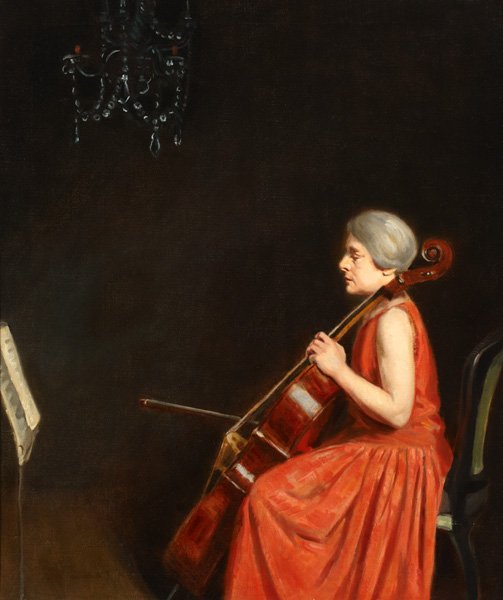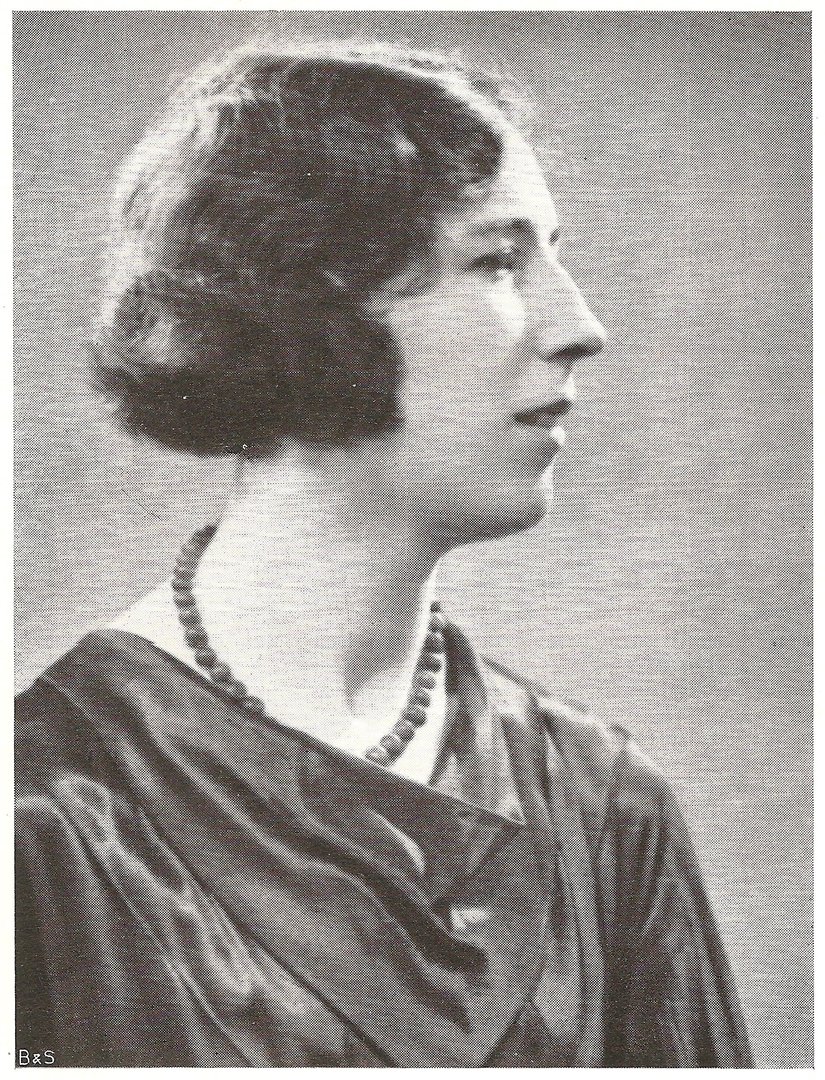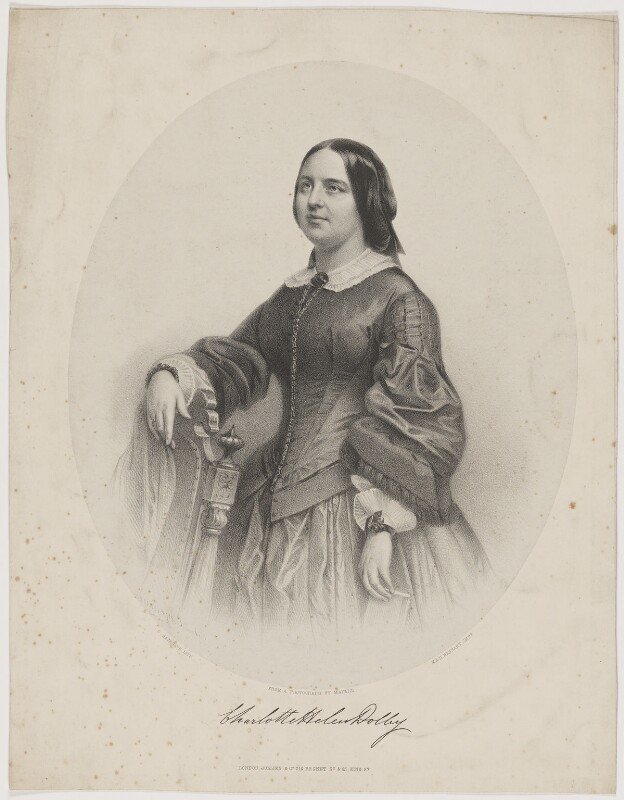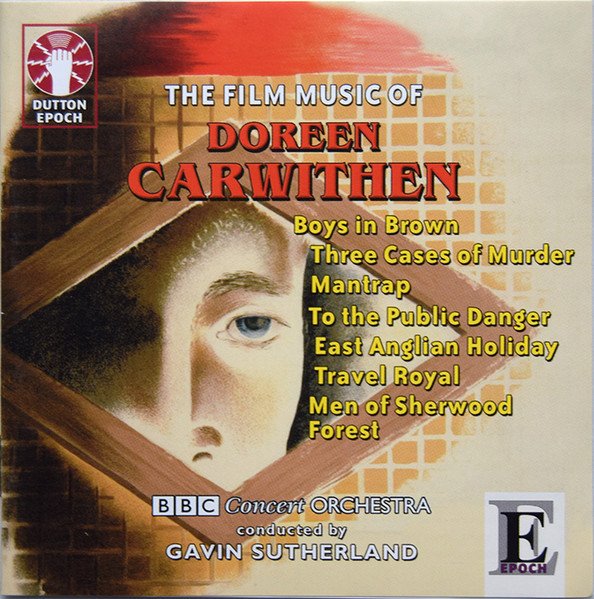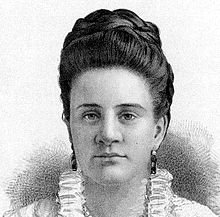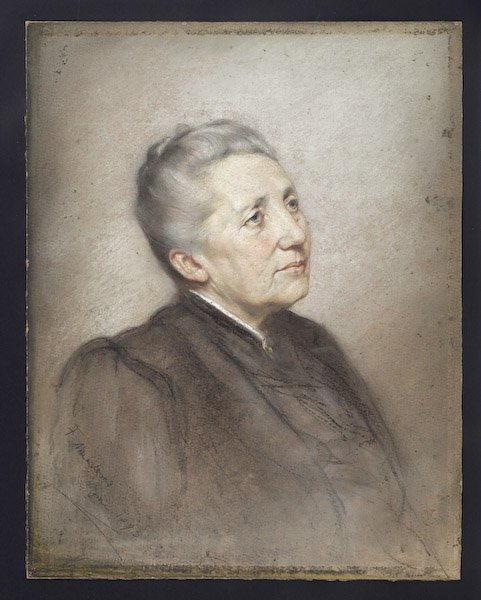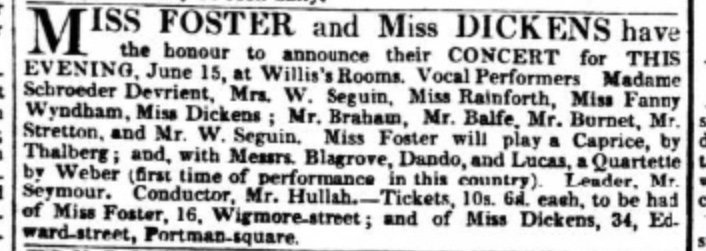The Mother Moon: Louisa May Alcott
“The moon upon the wide sea
Placidly looks down,
Smiling with her mild face,
Though the ocean frown.
Clouds may dim her brightness,
But soon they pass away,
And she shines out, unaltered,
O’er the little waves at play.
So ‘mid the storm or sunshine,
Wherever she may go,
Led on by her hidden power
The wild see must plow.
As the tranquil evening moon
Looks on that restless sea,
So a mother’s gentle face,
Little child, is watching thee.
Then banish every tempest,
Chase all your clouds away,
That smoothly and brightly
Your quiet heart may play.
Let cheerful looks and actions
Like shining ripples flow,
Following the mother’s voice,
Singing as they go.”
The Colours of Light: Dorothea Mackellar
“This is not easy to understand
For you that come from a distant land
Where all thecolours are low in pitch -
Deep purples, emeralds deep and rich,
Where autumn’s flaming and summer’s green -
Here is a beauty you have not seen.
All is pitched in a higher key,
Lilac, topaz, and ivory,
Palest jade-green and pale clear blue
Like aquamarines that the sun shines through,
Golds and silvers, we have at will -
Silver and gold on each plain and hill,
Silver-green of the myall leaves,
Tawny gold of the garnered sheaves,
Silver rivers that silent slide,
Golden sands by the water-side,
Golden wattle, and golden broom,
Silver stars of the rosewood bloom;
Amber sunshine, and smoke-blue shade:
Opal colours that glow and fade;
On the gold of the upland grass
Blue cloud-shadows that swiftly pass;
Wood-smoke blown in an azure mist;
Hills of tenuous amethyst. . .
Oft the colours are pitched so high
The deepest note is the cobalt sky;
We have to wait till the sunset comes
For shades that feel like the beat of drums -
Or like organ notes in their rise and fall -
Purple and orange and cardinal,
Or the peacock-green that turns soft and slow
To peacock-blue as the great stars show . . .
Sugar-gum boles flushed to peach-blow pink;
Blue-gums, tall at the clearing’s brink;
Ivory pillars, their smooth fine slope
Dappled with delicate heliotrope;
Grey of the twisted mulga-roots;
Golden-bronze of the budding shoots;
Tints of the lichens that cling and spread,
Nile-green, primrose, and palest red . . .
Sheen of the bronze-wing; blue of the crane;
Fawn and pearl of the lyrebird’s train;
Cream of the plover; grey of the dove -
These are the hues of the land I love.”
in The Rangitaiki Valley: Katharine Mansfield
“Valley of waving broom,
O lovely, lovely light,
O hear of the world, red-gold!
Breast high in the blossom I stand;
It beats about me like waves
Of a magical, golden sea
The barren heart of the world
Alive at the kiss of the sun,
The yellow mantle of Summer
Flung over a laughing land,
Warm with the warmth of her body
Sweet with the kiss of her breath.
O valley of waving broom,
O lovely, lovely light,
O mystical marriage of Earth
With the passionate Summer sun!
To her lover she holds a cup
And the yellow wine o’erflows.
He has lighted a little torch
And the whole of the world is ablaze.
Prodigal wealth of love!
Breast high in the blossom I stand.”
Early Cinema: Elizabeth Alexander
“According to Mister Hedges, the custodian
who called upon their parents
after young Otwiner and young Julia
were spotted at the matinee
of Rudolph Valentino in The Sheik
at the segregated Knickerbocker Theater
in the uncommon Washington December
of 1922, “Your young ladies
were misrepresenting themselves today,”
meaning, of course, that they were passing.
After coffee and no cake were finished
and Mister Hedges had buttoned his coat
against the strange evening chill,
choice words were had with Otwiner and Julia,
shame upon the family, shame upon the race.
How they’d longed to see Rudolph Valentino,
who was swarthy like a Negro, like the finest Negro man.
In The Sheik, they’d heard, he was turbaned,
whisked damsels away in a desert cloud.
They’d heard this from Lucille and Ella
who’d put on their fine frocks and French,
claiming to be “of foreign extraction”
to sneak into the Knickerbocker Theater
past the usher who knew their parents
but did not know them.
They’d heard this from Mignon and Doris
who’d painted carmine bindis on their foreheads
braided their black hair tight down the back,
and huffed, “We’ll have to take this up with the Embassy”
to the squinting ticket taker.
Otwiner and Julia were tired of Oscar Michaux,
tired of church, tired of responsibility,
rectitude, posture, grooming, modulation,
tired of homilies each way they turned,
tired of colored right and wrong.
They wanted to be whisked away.
The morning after Mister Hedges’ visit
the paperboy cried “Extra!” and Papas
shrugged camel’s hair topcoats over pressed pajamas,
and Mamas read aloud at the breakfast table,
“No Colored Killed When Roof Caves In”
at the Knickerbocker Theater
at the evening show
from a surfeit of snow on the roof.
One hundred others dead.
It appeared that God had spoken.
There was no school that day,
no movies for months after.”
The Lights of London: Louise Guiney
“The evenfall, so slow on hills, hath shot
Far down into the valley’s cold extreme,
Untimely midnight; spire and roof and stream
Like fleeing specters, shudder and are not.
The Hampstead hollies, from their sylvan plot
Yet cloudless, lean to watch as in a dream,
From chaos climb with many a sudden gleam,
London, one moment fallen and forgot.
Her booths begin to flare; and gases bright
Prick door and window; all her streets obscure
Sparkle and swarm with nothing true nor sure,
Full as a marsh of mist and winking light;
Heaven thickens over, Heaven that cannot cure
Her tear by day, her fevered smile by night.”
You Came, Too: Nikki Giovanni
“I came to the crowd seeking friends
I came to the crowd seeking love
I came to the crowd for understanding
I found you
I came to the crowd to weep
I came to the crowd to laugh
You dried my tears
You shared my happiness
I went from the crowd seeking you
I went from the crowd seeking me
I went from the crowd forever
You came, too”
A Litany For Survival: Audre Lorde
“For those of us who live at the shoreline
standing upon the constant edges of decision
crucial and alone
for those of us who cannot indulge
the passing dreams of choice
who love in doorways coming and going
in the hours between dawns
looking inward and outward
at once before and after
seeking a now that can breed
futures
like bread in our children’s mouths
so their dreams will not reflect
the death of ours;
For those of us
who were imprinted with fear
like a faint line in the center of our foreheads
learning to be afraid with our mother’s milk
for by this weapon
this illusion of some safety to be found
the heavy-footed hoped to silence us
For all of us
this instant and this triumph
We were never meant to survive.
And when the sun rises we are afraid
it might not remain
when the sun sets we are afraid
it might not rise in the morning
when our stomachs are full we are afraid
of indigestion
when our stomachs are empty we are afraid
we may never eat again
when we are loved we are afraid
love will vanish
when we are alone we are afraid
love will never return
and when we speak we are afraid
our words will not be heard
nor welcomed
but when we are silent
we are still afraid
So it is better to speak
remembering
we were never meant to survive.”
Boys Will Be Boys: Charlotte Perkins Gilman
“‘Boys will be boys,’ and boys have had their day;
Boy-mischief and boy-carelessness and noise
Extenuated all, allowed, excused and smoothed away,
Each duty missed, each damaging wild act,
By this meek statement of unquestioned fact–
Boys will be boys!
Now, ‘women will be women.’ Mark the change;
Calm motherhood in place of boisterous youth;
No warfare now; to manage and arrange,
To nurture with wise care, is woman’s way,
In peace and fruitful industry her sway,
In love and truth.”
Stealing: Carol Ann Duffy
“The most unusual thing I ever stole? A snowman.
Midnight. He looked magnificent; a tall, white mute
beneath the winter moon. I wanted him, a mate
with a mind as cold as the slice of ice
within my own brain. I started with the head.
Better off dead than giving in, not taking
what you want. He weighed a ton; his torso,
frozen stiff, hugged to my chest, a fierce chill
piercing my gut. Part of the thrill was knowing
that children would cry in the morning. Life’s tough.
Sometimes I steal things I don’t need. I joy-ride cars
to nowhere, break into houses just to have a look.
I’m a mucky ghost, leave a mess, maybe pinch a camera.
I watch my gloved hand twisting the doorknob.
A stranger’s bedroom. Mirrors. I sigh like this - Aah.
It took some time. Reassembled in the yard,
he didn’t look the same. I took a run
and booted him. Again. Again. My breath ripped out
in rags. It seems daft now. Then I was standing
alone among lumps of snow, sick of the world.
Boredom. Mostly I’m so bored I could eat myself.
One time, I stole a guitar and thought I might
learn to play. I nicked a bust of Shakespeare once,
flogged it, but the snowman was the strangest.
You don’t understand a word I’m saying, do you?”
What Kind of Times Are These: Adrienne Rich
“There’s a place between two stands of trees where the grass grows uphill
and the old revolutionary road breaks off into shadows
near a meeting-house abandoned by the persecuted
who disappeared into those shadows.
I’ve walked there picking mushrooms at the edge of dread, but don’t be fooled
this isn’t a Russian poem, this is not somewhere else but here,
our country moving closer to its own truth and dread,
its own ways of making people disappear.
I won’t tell you where the place is, the dark mesh of the woods
meeting the unmarked strip of light—
ghost-ridden crossroads, leafmold paradise:
I know already who wants to buy it, sell it, make it disappear.
And I won’t tell you where it is, so why do I tell you
anything? Because you still listen, because in times like these
to have you listen at all, it’s necessary
to talk about trees.”
I'm Not One of Those: Anna Akhmatova
“‘m not one of those who left their land
To the mercy of the enemy.
I was deaf to their gross flattery.
I won’t grant them my songs.
But to me the exile’s always wretched,
Like a convict, or a patient.
Wanderer your road is dark,
And the bread of strangers tastes bitter.
But in the blinding smoke, the flames,
Destroying the remains of youth,
We have refused to evade
A single blow against ourselves.
And we know that in the final reckoning,
Each hour will stand justified…
No people on earth shed fewer tears,
Are simpler, or more filled with pride.”
in Early Spring: Alice Meynell
“O Spring, I know thee! Seek for sweet surprise
In the young children’s eyes.
But I have learnt the years, and know the yet
Leaf-folded violet.
Mine ear, awake to silence, can foretell
The cuckoo’s fitful bell.
I wander in a gray time that encloses
June and the wild hedge-roses.
A year’s procession of the flowers doth pass
My feet, along the grass.
And all you sweet birds silent yet, I know
The notes that stir you so,
Your songs yet half devised in the dim dear
Beginnings of the year.
In these young days you meditate your part;
I have it all by heart.
I know the secrets of the seeds of flowers
Hidden and warm with showers,
And how, in kindling Spring, the cuckoo shall
Alter his interval.
But not a flower or song I ponder is
My own, but memory’s.
I shall be silent in those days desired
Before a world inspired.
O dear brown birds, compose your old song-phrases,
Earth, thy familiar daisies.
The poet mused upon the dusky height,
Between two stars towards night,
His purpose in his heart. I watched, a space,
The meaning of his face:
There was the secret, fled from earth and skies,
Hid in his gray young eyes.
My heart and all the Summer wait his choice,
And wonder for his voice.
Who shall foretell his songs, and who aspire
But to divine his lyre?
Sweet earth, we know thy dimmest mysteries,
But he is lord of his.”
Stravinsky's Three Pieces: Amy Lowell
“First Movement
Thin-voiced, nasal pipes
Drawing sound out and out
Until it is a screeching thread,
Sharp and cutting, sharp and cutting,
It hurts.
Whee-e-e!
Bump! Bump! Tong-ti-bump!
There are drums here,
Banging,
And wooden shoes beating the round, grey stones
Of the market-place.
Whee-e-e!
Sabots slapping the worn, old stones,
And a shaking and cracking of dancing bones;
Clumsy and hard they are,
And uneven,
Losing half a beat
Because the stones are slippery.
Bump-e-ty-tong! Whee-e-e! Tong!
The thin Spring leaves
Shake to the banging of shoes.
Shoes beat, slap,
Shuffle, rap,
And the nasal pipes squeal with their pigs’ voices,
Little pigs’ voices
Weaving among the dancers,
A fine white thread
Linking up the dancers.
Bang! Bump! Tong!
Petticoats,
Stockings,
Sabots,
Delirium flapping its thigh-bones;
Red, blue, yellow,
Drunkenness steaming in colours;
Red, yellow, blue,
Colours and flesh weaving together,
In and out, with the dance,
Coarse stuffs and hot flesh weaving together.
Pigs’ cries white and tenuous,
White and painful,
White and —
Bump!
Tong!
Second Movement
Pale violin music whiffs across the moon,
A pale smoke of violin music blows over the moon,
Cherry petals fall and flutter,
And the white Pierrot,
Wreathed in the smoke of the violins,
Splashed with cherry petals falling, falling,
Claws a grave for himself in the fresh earth
With his finger-nails.
Third Movement
An organ growls in the heavy roof-groins of a church,
It wheezes and coughs.
The nave is blue with incense,
Writhing, twisting,
Snaking over the heads of the chanting priests.
`Requiem aeternam dona ei, Domine’;
The priests whine their bastard Latin
And the censers swing and click.
The priests walk endlessly
Round and round,
Droning their Latin
Off the key.
The organ crashes out in a flaring chord,
And the priests hitch their chant up half a tone.
`Dies illa, dies irae,
Calamitatis et miseriae,
Dies magna et amara valde.’
A wind rattles the leaded windows.
The little pear-shaped candle flames leap and flutter,
`Dies illa, dies irae;’
The swaying smoke drifts over the altar,
`Calamitatis et miseriae;’
The shuffling priests sprinkle holy water,
`Dies magna et amara valde;’
And there is a stark stillness in the midst of them
Stretched upon a bier.
His ears are stone to the organ,
His eyes are flint to the candles,
His body is ice to the water.
Chant, priests,
Whine, shuffle, genuflect,
He will always be as rigid as he is now
Until he crumbles away in a dust heap.
`Lacrymosa dies illa,
Qua resurget ex favilla
Judicandus homo reus.’
Above the grey pillars the roof is in darkness.”
The Dark Before Dawn: Edith Thomas
“Oh, mystery of the morning gloam,
Of haunted air, of windless hush!
Oh, wonder of the deepening dome-
Afar, still far, the morning’s flush!
My spirit hears, among the spheres,
The round earth’s ever-quickening rush!
A single leaf, on yonder tree,
The planet’s rush hath felt, hath heard,
And soon all branches whispering be;
That whisper wakes the nested bird-
The song of the thrush, before the blush
Of Dawn, the dreaming world hath stirred!
The old moon withers in the East-
The winds of space may drive her far!
In heaven’s chancel waits the priest-
Dawn’s pontiff-priest, the morning star!
And yonder, lo! a shafted glow-
The gates of Day-spring fall ajar!”
Alice Lee: L.E.L.
“Through the dim and lonely forest
Comes a low sweet sound,
Like the whispering of angels
To the greenwood round,
Bearing through the hours of midnight,
On their viewless wings,
Music in its measure telling
High and holy things.
Through the forest lone and dim
Swelleth soft the twilight hymn
Of the old knight’s lovely daughter.
The gentle Alice Lee.
On the grass the dews unbroken
In their silver lie,
And the stars are out in thousands
On the deep blue sky;
Bright as when the old Chaldeans
Held them as the shrine
Where was kept the varying fortune
Of our human line.
Would that o’er their mystic scroll
Better hours may have to roll
For the old knight’s lovely daughter.
The gentle Alice Lee!
Time was, coming forth together,
She and Spring might seem
Like the beautiful creations
Of a morning dream;
Each went through the quiet greenwood
Wandering alone,
With the green leaves and wild flowers
O’er their pathway strown.
Of the seasons in the year
Spring seemed fittest to be near
The old knight’s lovely daughter,
The gentle Alice Lee.
Round her head the locks are golden,
So the sun in June
Pours his glory o’er the summer
At his crystal noon;
From that shining hair, when parted,
Came the pure high brow,
With the carving of a statue,
With the mountain’s snow.
Blue her eyes as yon blue heaven,
Nature every charm had given
To the old knight’s lovely daughter,
The gentle Alice Lee.
But it was the inward beauty
Breathing from her face,
That gave every look and motion
Its diviner grace;
Thought was on the high white forehead,
In the deep blue eyes,
And it was the quick warm feeling
Bade the blushes rise,
Which could such sweet light impart,
Writing on the cheek, the heart,
Of the old knight’s lovely daughter,
The gentle Alice Lee.
Lovely was the highborn maiden,
Happy were the hours
Gathering in the oak-tree’s shelter
Mosses and wild flowers;
When the deer from each green coppice
Fled, a startled band,
Save when some familiar favourite
Fed from her small hand.
Danger now, and fear, and wrath,
Are around the woodland path
Of the old knight’s lovely daughter,
The gentle Alice Lee.
Nobly doth she meet the trial,
She who hath but known
Till the present time of trouble
Life’s smooth path alone.
Though her smile be somewhat sadder,
And her eye subdued,
Such are lovelier as the token
Of a higher mood.
Like an angel’s is the face,
In its meek and pensive grace,
Of the old knight’s lovely daughter,
The gentle Alice Lee.
Not an hour of calm and quiet
Hath his old age found,
There are foes and strangers haunting
His ancestral ground.
Of his ancient halls and woodlands
Is the old man reft,
But they have not quite bereaved him,
For his child is left.
Others evil fortunes move,
Deeper, dearer, is the love
Of the old knight’s lovely daughter,
The gentle Alice Lee.
’T is her voice that now is raising
Words of praise and prayer,
Heaven will consecrate the worship
Of this hour of care.
Earthly care and earthly sorrow
Only purify;
Such a heart as that uplifting
Its best hopes on high.
Heaven will bless the faithful maid,
Heaven will bless the duty paid
By the old knight’s lovely daughter,
The gentle Alice Lee.”
The Other Side of a Mirror: Mary Coleridge
“I sat before my glass one day,
And conjured up a vision bare,
Unlike the aspects glad and gay,
That erst were found reflected there -
The vision of a woman, wild
With more than womanly despair.
Her hair stood back on either side
A face bereft of loveliness.
It had no envy now to hide
What once no man on earth could guess.
It formed the thorny aureole
Of hard, unsanctified distress.
Her lips were open - not a sound
Came though the parted lines of red,
Whate’er it was, the hideous wound
In silence and secret bled.
No sigh relieved her speechless woe,
She had no voice to speak her dread.
And in her lurid eyes there shone
The dying flame of life’s desire,
Made mad because its hope was gone,
And kindled at the leaping fire
Of jealousy and fierce revenge,
And strength that could not change nor tire.
Shade of a shadow in the glass,
O set the crystal surface free!
Pass - as the fairer visions pass -
Nor ever more return, to be
The ghost of a distracted hour,
That heard me whisper: - ‘I am she!’”
A Farewell to America: Phillis Wheatley
“I.
Adieu, New-England’s smiling meads,
Adieu, th’ flow’ry plain:
I leave thine op’ning charms, O spring,
And tempt the roaring main.
II.
In vain for me the flow’rets rise,
And boast their gaudy pride,
While here beneath the northern skies
I mourn for health deny’d.
III.
Celestial maid of rosy hue,
Oh let me feel thy reign!
I languish till thy face I view,
Thy vanish’d joys regain.
IV.
Susannah mourns, nor can I bear
To see the crystal shower
Or mark the tender falling tear
At sad departure’s hour;
V.
Not regarding can I see
Her soul with grief opprest
But let no sighs, no groans for me
Steal from her pensive breast.
VI.
In vain the feather’d warblers sing
In vain the garden blooms
And on the bosom of the spring
Breathes out her sweet perfumes.
VII.
While for Britannia’s distant shore
We weep the liquid plain,
And with astonish’d eyes explore
The wide-extended main.
VIII.
Lo! Health appears! celestial dame!
Complacent and serene,
With Hebe’s mantle oe’r her frame,
With soul-delighting mien.
IX.
To mark the vale where London lies
With misty vapors crown’d
Which cloud Aurora’s thousand dyes,
And veil her charms around.
X.
Why, Phoebus, moves thy car so slow?
So slow thy rising ray?
Give us the famous town to view,
Thou glorious King of day!
XI.
For thee, Britannia, I resign
New-England’s smiling fields;
To view again her charms divine,
What joy the prospect yields!
XII.
But thou! Temptation hence away,
With all thy fatal train,
Nor once seduce my soul away,
By thine enchanting strain.
XIII.
Thrice happy they, whose heavenly shield
Secures their souls from harm,
And fell Temptation on the field
Of all its pow’r disarms.”
Not My Best Side: E. A. Fanthorpe
“I
Not my best side, I’m afraid.
The artist didn’t give me a chance to
Pose properly, and as you can see,
Poor chap, he had this obsession with
Triangles, so he left off two of my
Feet. I didn’t comment at the time
(What, after all, are two feet
To a monster?) but afterwards
I was sorry for the bad publicity.
Why, I said to myself, should my conqueror
Be so ostentatiously beardless, and ride
A horse with a deformed neck and square hoofs?
Why should my victim be so
Unattractive as to be inedible,
And why should she have me literally
On a string? I don’t mind dying
Ritually, since I always rise again,
But I should have liked a little more blood
To show they were taking me seriously.
II
It’s hard for a girl to be sure if
She wants to be rescued. I mean, I quite
Took to the dragon. It’s nice to be
Liked, if you know what I mean. He was
So nicely physical, with his claws
And lovely green skin, and that sexy tail,
And the way he looked at me,
He made me feel he was all ready to
Eat me. And any girl enjoys that.
So when this boy turned up, wearing machinery,
On a really dangerous horse, to be honest
I didn’t much fancy him. I mean,
What was he like underneath the hardware?
He might have acne, blackheads or even
Bad breath for all I could tell, but the dragon—
Well, you could see all his equipment
At a glance. Still, what could I do?
The dragon got himself beaten by the boy,
And a girl’s got to think of her future.
III
I have diplomas in Dragon
Management and Virgin Reclamation.
My horse is the latest model, with
Automatic transmission and built-in
Obsolescence. My spear is custom-built,
And my prototype armour
Still on the secret list. You can’t
Do better than me at the moment.
I’m qualified and equipped to the
Eyebrow. So why be difficult?
Don’t you want to be killed and/or rescued
In the most contemporary way? Don’t
You want to carry out the roles
That sociology and myth have designed for you?
Don’t you realize that, by being choosy,
You are endangering job prospects
In the spear- and horse-building industries?
What, in any case, does it matter what
You want? You’re in my way.”
from Appalachian Elegy: bell hooks
“6.
listen little sister
angels make their hope here
in these hills
follow me
I will guide you
careful now
no trespass
I will guide you
word for word
mouth for mouth
all the holy ones
embracing us
all our kin
making home here
renegade marooned
lawless fugitives
grace these mountains
we have earth to bind us
the covenant
between us
can never be broken
vows to live and let live”
Municipal Gum: Oodgeroo Noonuccal
“Gumtree in the city street,
Hard bitumen around your feet,
Rather you should be
In the cool world of leafy forest halls
And wild bird calls
Here you seems to me
Like that poor cart-horse
Castrated, broken, a thing wronged,
Strapped and buckled, its hell prolonged,
Whose hung head and listless mien express
Its hopelessness.
Municipal gum, it is dolorous
To see you thus
Set in your black grass of bitumen–
O fellow citizen,
What have they done to us?”
